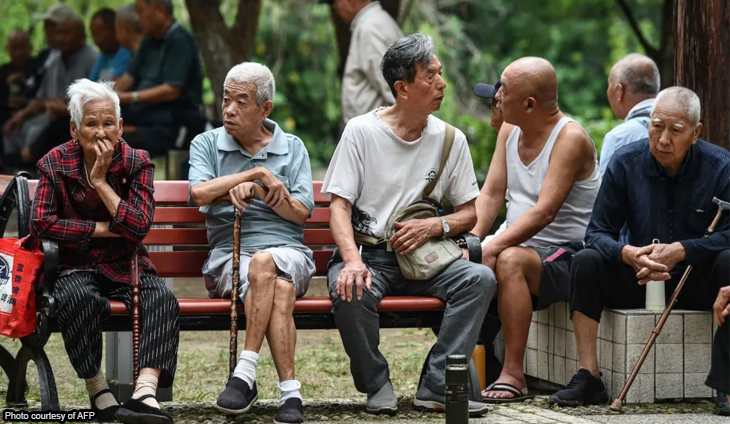
China’s changes to the retirement age are not enough to fix the pension problem
Economists and demographers say that China’s move to raise retirement ages is a good start to fix huge pension deficits and boost a shrinking workforce. However, more pain is on the way as the economy slows down, which makes it urgent for more changes.
People all over the world are getting older, but China has a particularly big problem with it because of its one-child policy, which was in place for 30 years and made the country’s demographic problems worse.
Last year, there were only 9 million births in China. The UN predicts that China’s working-age population will drop by almost 40% by 2050 compared to 2010 if birth rates stay the same.
Both older and younger workers are worried about the changes. This is because lawmakers are trying to keep the public stable and deal with big differences in pensions between rural and urban areas.
“They need to fix the pension problem now,” said Alicia Garcia Herrero, chief economist for Asia Pacific at Natixis. “This is while they still have some growth to pay for the deficit.”
It used to be about 8% in the early 2000s, but now it’s only about 5%. She said it could drop as low as 1% after 2035.
As a result of public worries, Chinese lawmakers rushed through the policy in September without consulting the people. This meant that retirement ages that had been set in the 1950s were changed.
China has a life span of 78 years, up from about 44 years in 1960. By 2050, it is expected to be over 80 years.
A report from the official Xinhua news agency says that Chinese Premier Li Qiang called the change a “significant move” to improve China’s social security system and “better protect and improve people’s livelihoods.”
Still, China’s basic pension system, which is run by the government, is facing a lot of financial problems.
About one-third of China’s local governments have problems paying their pensions. The Chinese Academy of Social Sciences says that if nothing is done, the pension system will run out of money in 2035.
In less developed areas, monthly urban pensions are around 3,000 yuan ($425). In Beijing and Shanghai, they are around 6,000 yuan. In 2009, rural benefits were made available across the country.
NOT REQUIRED
The number of people in China aged 60 and up is expected to grow by at least 40%, reaching more than 400 million by 2035. This is the same number of people living in Britain and the US put together.
Migrant workers, who usually don’t get good pensions, keep working into their later years. This is in contrast to state-sector workers, who get better pensions and have less reason to choose the later retiring ages.
In China, the number of years of contributions needed to get a salary will go up from 15 to 20 starting in 2030.
Prof. Stuart Gietel-Basten of the Hong Kong University of Science and Technology said that making the contribution time frame even longer “especially in light of the current state of the gig and informal economy” could make it harder for many blue-collar workers to get their pension.
Ernan Cui, a China consumer analyst at Gavekal Dragonomics, said that the initial fiscal effect of raising retirement ages will probably be small because most people will choose to do so.
“In the short term, raising the retirement age might not bring in much money…”Many workers will not have to pay the upcoming increase, but they will have to pay more over a longer period of time in order to get a pension, she said.
China has problems with its population and income inequality, according to John Wang, an expert at Moody’s Ratings. He said that the new laws could be harmful to society.
“Successful implementation of China’s retirement age reforms will depend on managing risks…such as the skill set of the elderly population, the available jobs and their adaptability to developments in technology and innovation.”
One dollar is equal to 7.0465 Chinese yuan.
All Categories
Recent Posts
Tags
+13162306000
zoneyetu@yahoo.com



